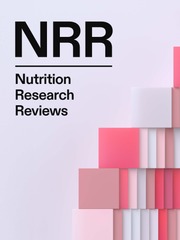No CrossRef data available.
Article contents
What is the dietary intake and nutritional status of Defence Members: A systematic Literature Review
Published online by Cambridge University Press: 16 September 2024
Abstract
Optimal diet and nutrition is vital for military readiness, performance and recovery. Previous research on military diets has primarily focused on the nutritional composition of field/combat rations and dietary intake during deployment. There is accumulating research exploring the usual free-living dietary intake and nutritional status of defence members in garrison (i.e. military bases on which personnel are stationed). However, no comprehensive review has been conducted to assess the overall dietary quality of defence members internationally. Therefore, this review assessed the diets of military populations against national nutritional guidelines and Military Dietary Reference Intakes (MDRI’s). A systematic literature review of original research was conducted. CINAHL, Medline (EBSCO), Scopus (Elsevier), PubMed and AMED databases were searched up to the 20/02/2023. A total of 36 studies met the inclusion criteria. The overall quality of included studies was high, with a low risk of bias. The diet quality scores indicate poor to fair diet quality among defence members. Defence members display low intakes of fruits, vegetables, wholegrains, seafood, plant protein and nuts and high intakes of added sugars, trans fat and processed meat. Results also indicated suboptimal intake of fiber, essential fatty acids, vitamin A, vitamin E, folate, magnesium, zinc and iodine. This may lead to reduced performance, increased risk of chronic diseases and mental health disorders. More research is needed to assess the long-term consequences of poor diet quality in defence members. These results require the attention of policymakers to ensure that military education and food environment is supportive of healthy eating.
- Type
- Review Article
- Information
- Copyright
- © The Author(s) 2024


